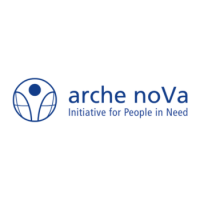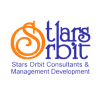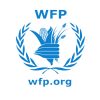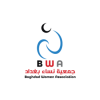Job Overview
Project title: “Strengthening the resilience of returnee and host communities in northern Iraq through multi-sectoral reconstruction of basic infrastructure, capacity building of local structures and supporting economic development”
Implementing Organization: arche noVa (Initiative for people in need)-Iraq
Geographical Focus: Kirkuk, Diyala, and Salah Al-Din Governorates/Iraq
Project Duration: June 2020 to May 2024
Background:
Organization overview: arche noVa e.V. is a German non-governmental organization (NGO) that was founded in 1992. It is focused on humanitarian aid and development cooperation, working in countries affected by disasters, conflicts, and poverty.
arche noVa’s programs include emergency relief, disaster risk reduction, water, sanitation and hygiene (WASH), food security, health care, education, and social development. The organization has been active in many countries, including Syria, Iraq, Lebanon, Yemen, Jordan, Turkey, Bangladesh, Myanmar, Somalia, South Sudan, and Haiti. arche noVa is funded by donations from private individuals, corporations, and government agencies. The organization is a member of several humanitarian networks and is committed to promoting humanitarian principles and the rights of vulnerable people in crises.
AN’s Vision: Our vision is a world without hardship in which all people can live self-determinedly and with dignity. Access to clean drinking water and adequate sanitation as well as a good education is an important foundation for this.
AN’s Mission: We support people in attaining the knowledge, skills and means necessary to bring this vision to fruition. We enable sufficient and safe water supply, sanitation facilities and context-appropriate hygiene measures (WASH) and improve the living conditions in regions affected by natural disasters, crises and poverty. In doing this, we provide emergency- as well as transitional aid and engage in long-term development cooperation.
Project overview: The current project is funded by the German Federal Ministry for Economic Cooperation and Development (BMZ), the long-term project addresses all ethnic groups living in the target area, intends to meet the urgent needs and improve the resilience of the target groups ( Internally Displaced Population, Returnees, and Host Communities) by first restoring and rebuilding a sustainable and resilient basic infrastructure that ensures adequate and inclusive access to basic services. The WASH infrastructure, including irrigation channels, ensures water supply, improves health care provision and addresses water scarcity for agriculture/animal farming, thereby increasing agricultural yields/revenue and reducing chronic food and income insecurity.
Adequate water supply and sanitation, together with the promotion of good hygiene practices, improves the health situation, prevents the outbreak of water-borne diseases and creates a healthy environment. The social disadvantage of women and PWD is addressed through the comprehensive rehabilitation and equipping of infrastructure to improve their access to basic services and social participation, as well as through the provision of gender-specific hygiene promotion, the improvement of food security and the creation of livelihoods.
Project impact objective: The project is “to strengthen the resilience of vulnerable returnees, internally displaced persons (IDPs) and host communities through improved access to basic services and income security” in the governorates of Kirkuk, Diyala and Salah al-Din in Iraq.
Purpose of the Evaluation: The purpose of this evaluation is to assess the overall effectiveness, impact, and sustainability of the implemented project in Kirkuk, Diyala, and Salah Al-Din Governorates. The evaluation will provide valuable insights into the achievements, challenges faced, lessons learned, and the overall contribution of the project towards its intended goals and objectives.
Evaluation OBJECTIVES: The main objective is to provide an external and independent assessment of whether the project is on track to achieve the expected results and contribute to positive changes. Additionally, the evaluation will assess whether the grant led to any unforeseen positive or negative results. The assessment will stimulate learning and inform AN’s upcoming projects under other grants. By the end of the evaluation, we aim to:
- Extract Knowledge on the progress of implementation, challenges and learnings from project set-up and execution approaches.
- Document lessons learnt and good practices to generate recommendations for course correction in the upcoming new projects.
- Assess the project’s alignment with its stated objectives.
- Evaluate the impact of project interventions on the targeted communities.
- Examine the efficiency and effectiveness of project management and implementation.
- Review the sustainability of project outcomes and identify potential risks.
Methodology:
- The evaluator is ultimately responsible for the overall methodological approach and design of the mid-term/final review, which should be adapted to the requirements of these terms of reference (ToR).
- The review, including approach and methods, will be planned, agreed upon, and conducted in close consultation with the AN Monitoring, Evaluation, Accountability and Learning (MEAL) Senior Officer and the AN’s Senior management team.
- The project team will provide the necessary substantive support, including sharing all documents for desk review.
- The review should use a participatory and inclusive approach, engaging relevant staff at AN, beneficiaries, stakeholders and relevant government entities.
- The exact methodology should be defined, discussed, and agreed upon with AN during the inception phase.
- Utilize a combination of qualitative and quantitative research methods.
- Conduct interviews, focus group discussions, surveys, and field visits.
Qualifications and Requirements for the External Evaluator:
- Expertise: Demonstrated experience in evaluating humanitarian and long-term projects, preferably in Iraq or similar contexts and Knowledge of the cultural and socio-economic dynamics of the target governorates.
- Qualifications: Advanced degree in a relevant field (e.g., development studies, international relations, social sciences).
- Skills:
- Strong analytical and research skills.
- Excellent communication and report-writing skills.
- Fluency in English and Arabic and knowledge of Kurdish.
- Deliverables:
- Submit a comprehensive plan/schedule and timeline for completing the evaluation.
- Inception Report: Outline the evaluation methodology and work plan.
- Draft Evaluation Report: Provide preliminary findings and recommendations for feedback.
- Mid-term/Final Evaluation Report: Present a comprehensive report, incorporating feedback received during the draft stage. The final report should be at most between 20 and 25 pages, excluding the annexes, additionally, the mid-term/final report should include an introduction, main findings in written and graph/picture, conclusion and recommendations sections.
- Timeline: All tasks, from inception to submission of the final report, must be completed within 45 calendar days, starting immediately after the contract is signed by both parties.
- Confidentiality: All the beneficiary’s data should be kept confidential and not allowed to be shared with a third party.
- Access: The evaluator is responsible for arranging their own transportation, field trip logistics, securing access to activity sites, and negotiating with stakeholders. Arche noVa staff will only assist by providing contact information for relevant community leaders, government entities, and other stakeholders.
- Clarity and reporting language: The evaluator must provide all reports, documents, and annexes in clear English language.
Reference: The evaluation findings should be properly
More Information
- Address Erbil - Vittal Village House NO.49
- How to apply The applicants are required to submit their CV, along with a comprehensive schedule detailing the evaluation process from inception to the submission of the final report, as well as the finalized report template and previous similar work examples to: [email protected] (indicating "Evaluation" in the subject line).






